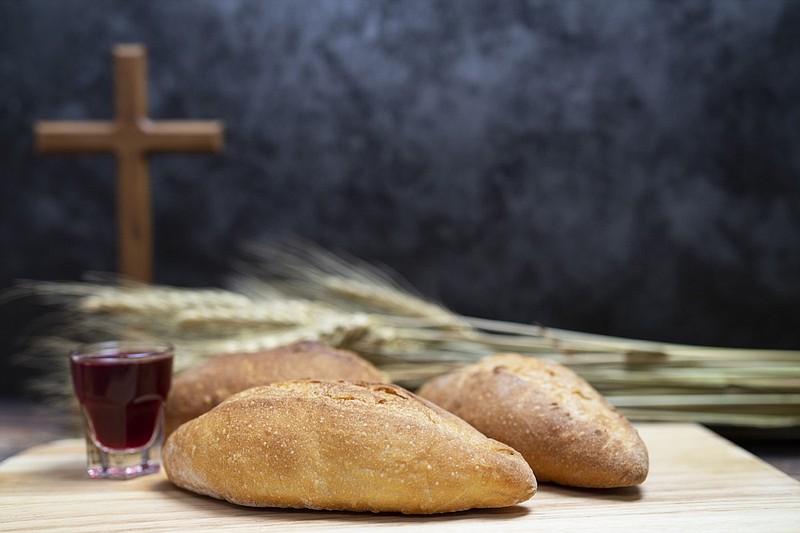EDITOR'S NOTE: This article is part of Religion: Got questions?, a series answering your biggest religious questions. Each week, we will answer one submitted faith question. To send a submission, visit timesfreepress.com/religionquestions or email wmassey@timesfreepress.com.
Question: Christians have communion to remind us of our faith. Do other religions have something special to draw them together?
Answer: Communion draws Christians to remember the final days of Jesus. Depending on the tradition, some believers participate in the bread and wine daily or monthly. Among the various denominations, Catholics believe Jesus is present in the eucharist, while most Protestant traditions, such as the Presbyterian Church, view communion as a symbolic act.
Other religions do have similar rituals to create community and remind people of their faith.
In the Jewish tradition, Orthodox Jews are called to pray three times a day - morning, afternoon and evening - said Rabbi Jessica Minnen, director of Jewish learning at OneTable, a nonprofit promoting Jewish traditions among millennials.
However, the weekly Shabbat - Judaism's day of rest, running from sunset on Friday to sunset on Saturday - is a strong parallel to Christianity's communion. The Jewish sabbath offers believers a chance to gather, recognize the presence of God and honor the process of creation, especially in a moment defined by constant busyness.
"Shabbat offers us, as Jews, this regular way of punctuating our lives with Jewish time," Minnen said. "Because, if you think about it, all the other ways that we tell time are based on natural processes."
Days and years are dictated by the revolutions of the earth. The seventh day of the week is largely arbitrary but in scripture is intended to be a time to focus on rest and faith, she said.
The annual Passover seder, which recounts the Jewish exodus from Egypt, offers another similarity to Christianity's communion, said Jonathan Brumberg-Kraus, Wheaton College professor of religion. Like in communion, the seder involves reciting history and scripture, then connecting the history with food, he said.
For example, a seder plate includes bitter herbs to symbolize the bitterness of slavery and the sweet-tasting charoset symbolizes freedom.
The many overlapping ideas of faith and food across religions creates a kind of "conscious ingestion" of religion, Brumberg-Kraus said.
"You're bringing God in through your mouth," he said. " - The power of rituals like communion is that they're very palpable. You taste the things that you're eating. If you're saying something, you feel the vibrations in your throat. And you hear the things with your ears. And it makes your connection to God and to the community very sensually palpable."
Rose Aslan, California Lutheran University assistant professor, said there is not a direct parallel to communion in Islam. There are no universal foods for Islamic traditions, except for eating dates when breaking the Ramadan fast and ensuring meat is halal, she said.
Unlike in Christianity, there are several different terms in Arabic to define different types of prayer, she said. For example, there is salah, meaning the five daily prayers, or dua, a series of prayers Muslims can recite depending on their situation.
The different understandings of the word "prayer" can sometimes lead to confusion across religions, Aslan said. However, prayer overall is the second of Islam's five pillars. Muslims can make the dua for almost every situation, whether it is in traffic or making food, to recall the constant presence of God, Aslan said.
"The mechanics of Islam include a lot of different forms of prayer that can keep Muslims mindful in communal settings and in individual setting," she said.
From the reporter
I became a journalist to help people see people as people. But highlighting the human side of every policy decision, and how it is affecting your community, takes time as well as support from readers. If you believe in telling the stories of people in your community, please subscribe to the Times Free Press today. Contact me at wmassey@timesfreepress.com or 423-757-6249. Find me on Twitter at @News4Mass.
